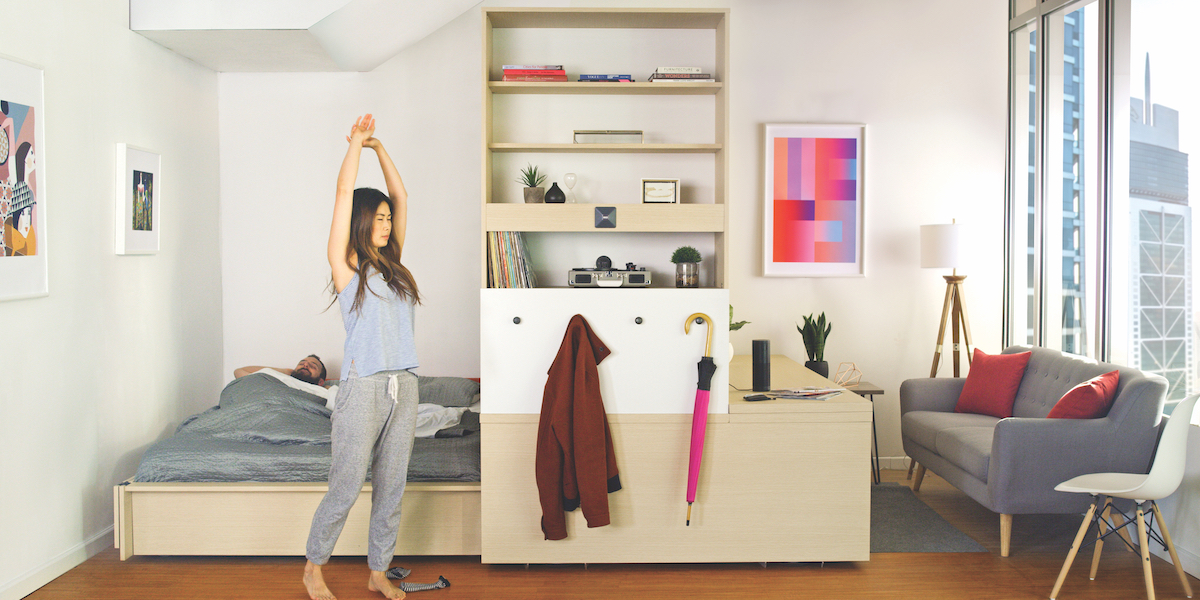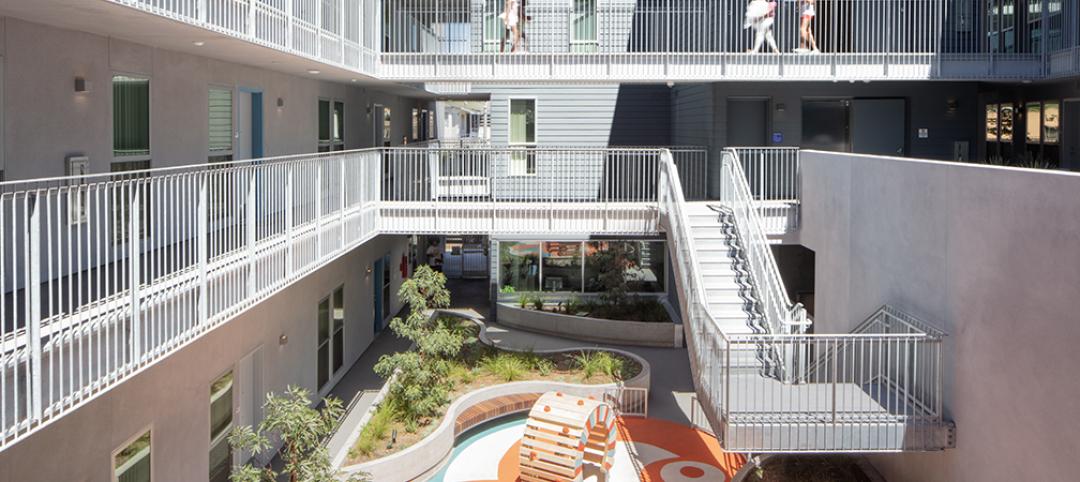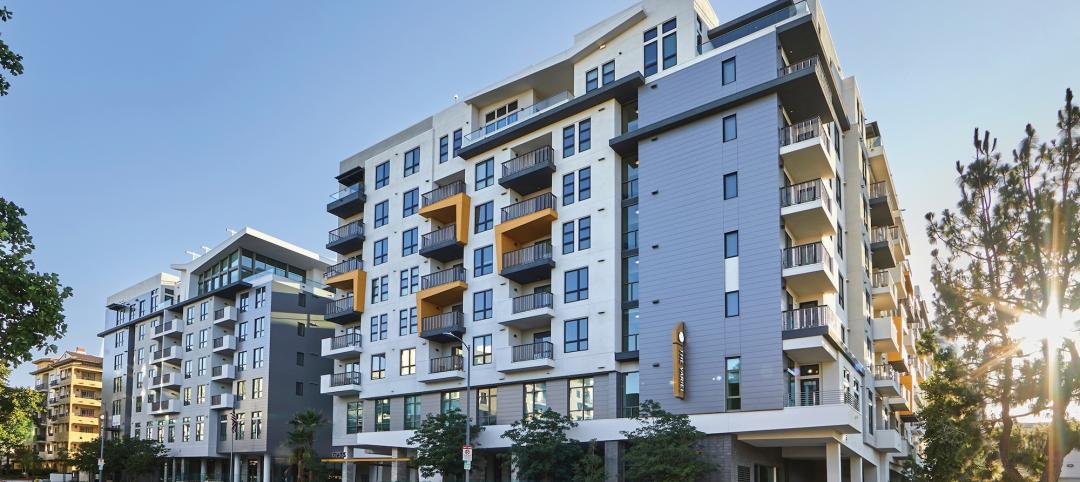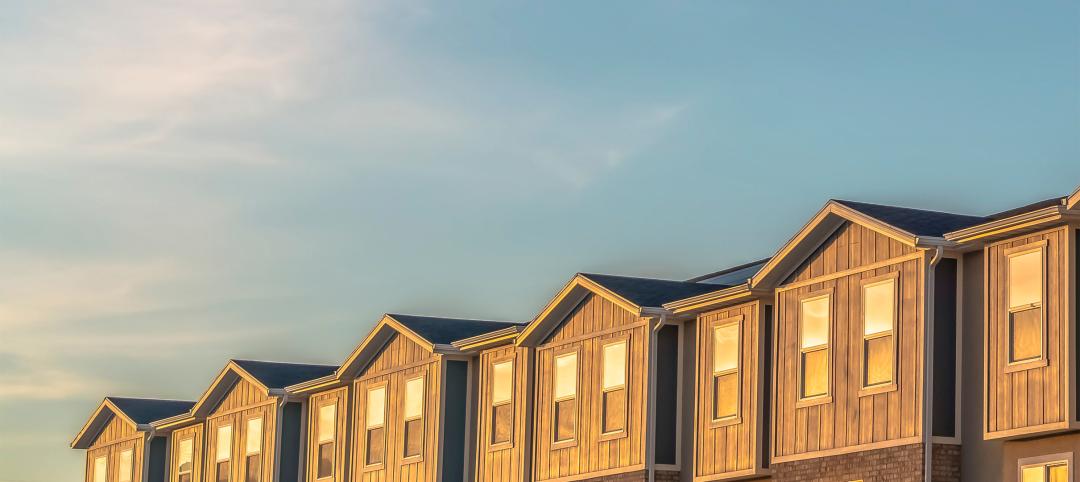What if furniture could have superpowers?
That’s the concept Hasier Larrea toyed with as he and his fellow MIT Media Lab graduate students—Carlos Rubio, Chad Bean, and Ivan Fernandez de Casadevante—explored how to use robotics to make interior spaces more efficient and usable.
That inquiry led to the founding four years ago of Boston-based Ori, Inc., which has developed two robotically controlled, space-saving furniture systems: Ori Studio Suite (and its Studio Suite Slim version), a movable structure that holds a bed, desk, table, and TV nook and has room for storage; and Ori Pocket Closet, which comes with similar accoutrements minus the bed.
SEE ALSO: What multifamily developers are saying about Ori Living's robotic interior system
To date, Ori has installed nearly 100 of its robotic furniture systems in more than 25 apartment buildings, primarily in Boston, Chicago, Miami, and San Francisco—cities where affordable rentals are scarce. But it took the inventor most of the decade to get market acceptance for what originally seemed like a pie-in-the-sky technology.
Larrea grew up in San Sebastián, in Spain’s Basque region. He played fútbol for Real Sociedad through high school and went on to earn BS and MS degrees in mechanical engineering at the University of Navarra. In 2011, he got an opportunity to work with Kent Larson, Director of the City Science research group at the MIT Media Lab.
Larrea and Larson challenged themselves to go beyond traditional thinking about interior spaces as “assigned” to a single function—a bedroom only, a living room only. “We wanted to bring mechanics software and control into a moving wall, to remove the physical constraints so that you could use as much of the space as possible,” said Larrea. They called the new field of research “robotic interiors.”
Starting in 2014 or so, Larrea, aided by his fellow grad students, developed several prototypes, many of them inspired by their work at MIT’s LEGO Mindstorms. The next crucial step was to standardize the product. “We wanted to create a kit of parts, so that every time we had a new idea—for electronics, or software, or safety—we wouldn’t have to start from scratch.” Standardization, they believed, was crucial to the success of the system. “There are only so many ways you can move things in three dimensions,” said Larrea.
After graduating from the MIT program in 2015, Larrea launched the company through the MIT delta v student entrepreneurship program. His thesis reviewer, the Media Lab’s Nicholas Negroponte, introduced him to industrial designer Yves Behar, whose FuseProject team came up with the brand name for the product: “ori,” a Japanese term meaning “to fold” (think “origami”).
Ori rented an apartment in Boston’s Seaport district to test the product. “We got random people to stay for a weekend over a two-year period, to see what they liked and didn’t like,” said Larrea. “The system proved to be incredibly robust.” After rigorous safety testing the system has been certified by UL.
I asked Larrea why the big furniture makers didn’t come up with such a system. “Furniture makers and robotics people don’t understand each other,” he said. “That’s where we saw the potential to bring these two fields together.”
Next up: The Ori “Cloud Bed,” a robotically controlled bed that descends from the ceiling, deus ex machina–style.
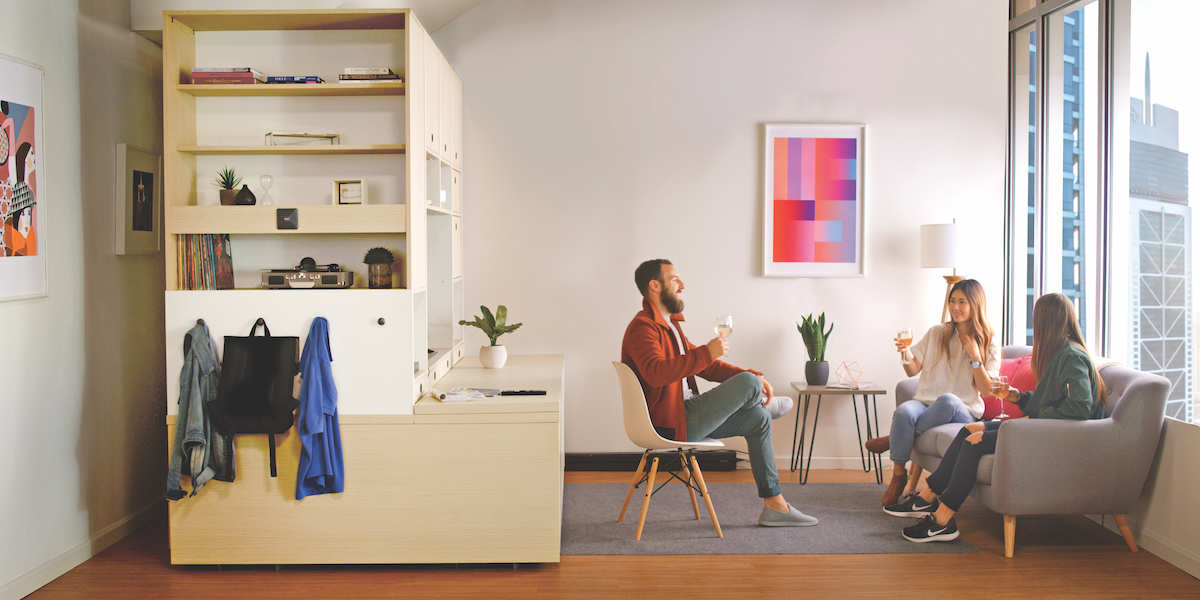
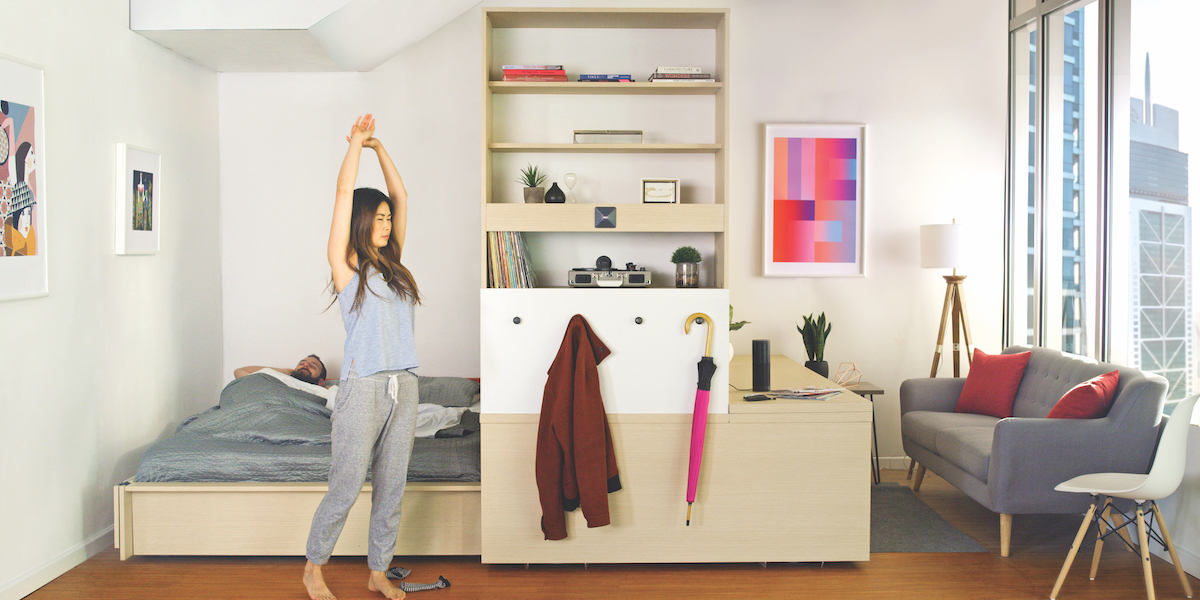 Ori Studio Suite in daytime position (top) and in nighttime position (bottom). Photos: Ori Living
Ori Studio Suite in daytime position (top) and in nighttime position (bottom). Photos: Ori Living
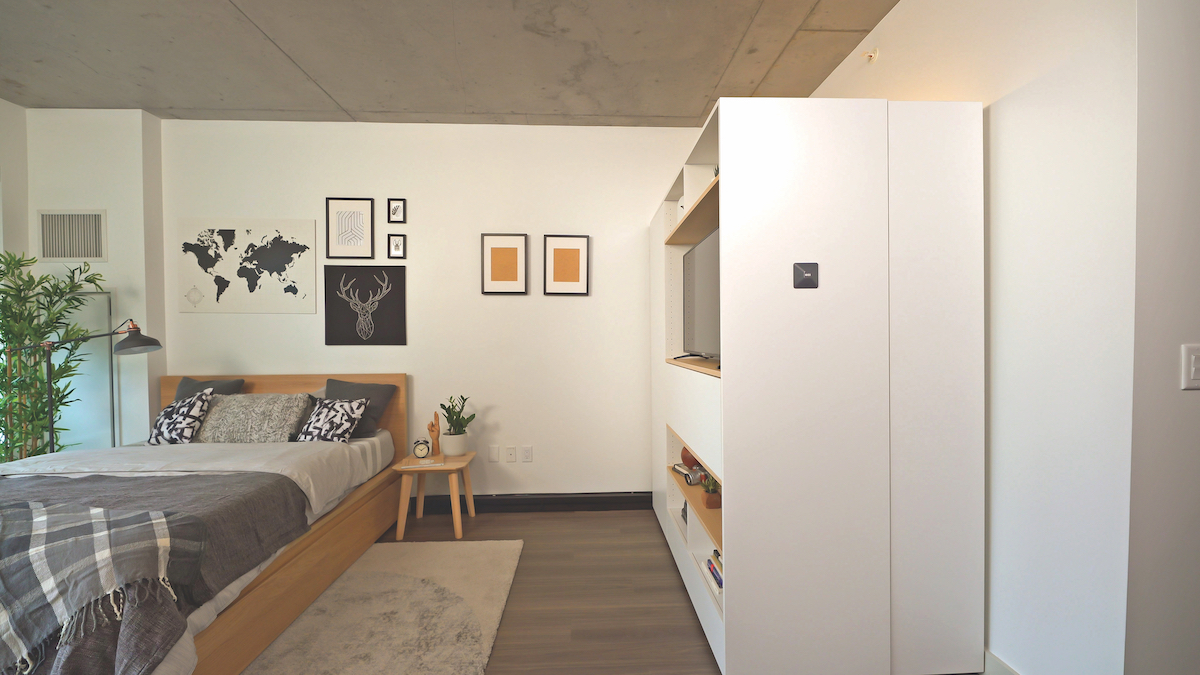
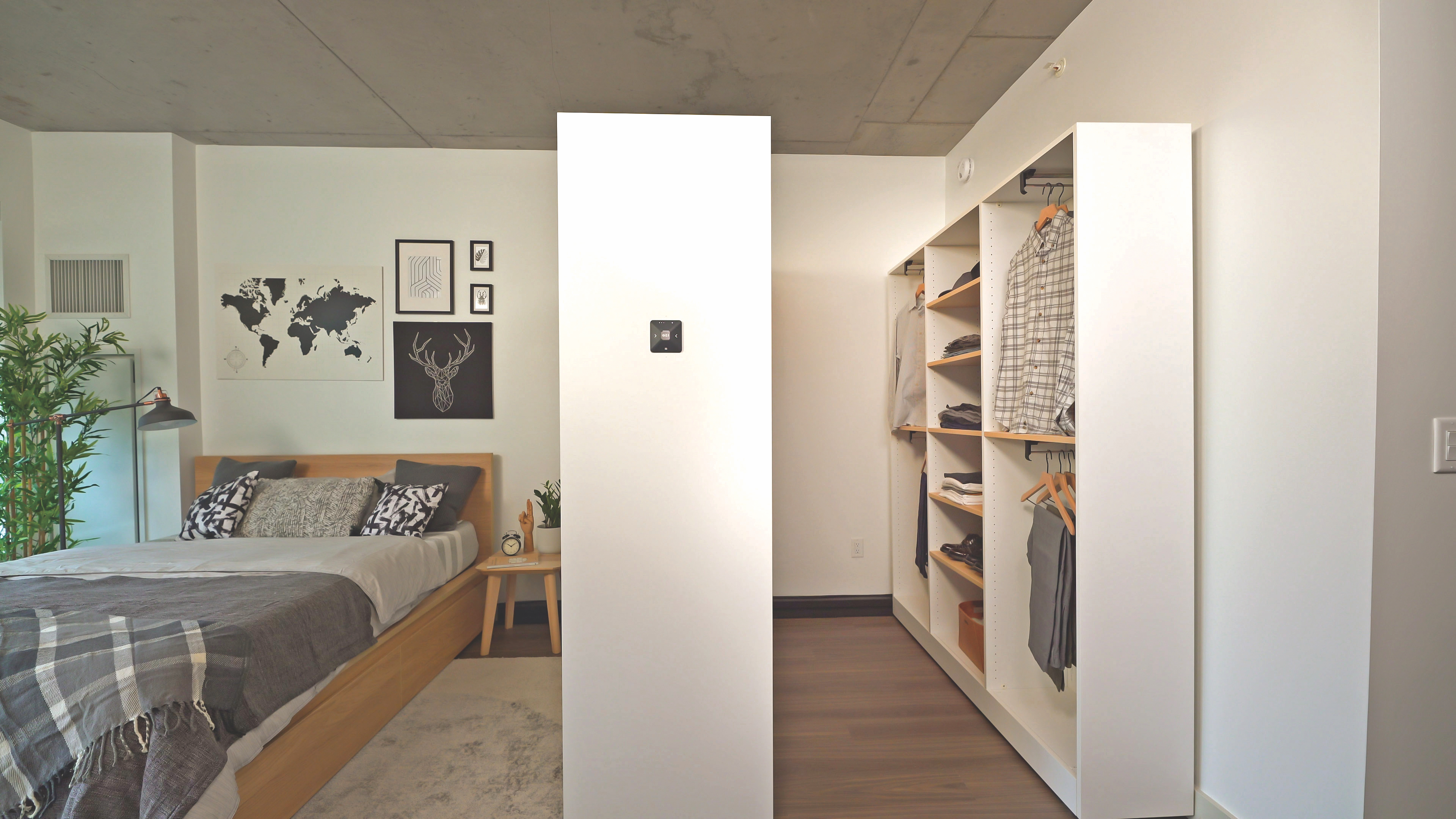 Ori Pocket Closet in closed position (top). It opens (via black button) for access to clothes, etc. (above). Pocket Closet comes with 110 cubic feet of storage, 140 inches of hanging space, a desk, 48-inch TV nook, LED lighting, three outlets, and two USB ports and adds the equivalent of 40 square feet of usable space to an apartment. Cost: $3,000 to $7,000. Photos: Ori Living
Ori Pocket Closet in closed position (top). It opens (via black button) for access to clothes, etc. (above). Pocket Closet comes with 110 cubic feet of storage, 140 inches of hanging space, a desk, 48-inch TV nook, LED lighting, three outlets, and two USB ports and adds the equivalent of 40 square feet of usable space to an apartment. Cost: $3,000 to $7,000. Photos: Ori Living
Related Stories
MFPRO+ New Projects | Mar 18, 2024
Luxury apartments in New York restore and renovate a century-old residential building
COOKFOX Architects has completed a luxury apartment building at 378 West End Avenue in New York City. The project restored and renovated the original residence built in 1915, while extending a new structure east on West 78th Street.
Multifamily Housing | Mar 18, 2024
YWCA building in Boston’s Back Bay converted into 210 affordable rental apartments
Renovation of YWCA at 140 Clarendon Street will serve 111 previously unhoused families and individuals.
Adaptive Reuse | Mar 15, 2024
San Francisco voters approve tax break for office-to-residential conversions
San Francisco voters recently approved a ballot measure to offer tax breaks to developers who convert commercial buildings to residential use. The tax break applies to conversions of up to 5 million sf of commercial space through 2030.
Apartments | Mar 13, 2024
A landscaped canyon runs through this luxury apartment development in Denver
Set to open in April, One River North is a 16-story, 187-unit luxury apartment building with private, open-air terraces located in Denver’s RiNo arts district. Biophilic design plays a central role throughout the building, allowing residents to connect with nature and providing a distinctive living experience.
Affordable Housing | Mar 12, 2024
An all-electric affordable housing project in Southern California offers 48 apartments plus community spaces
In Santa Monica, Calif., Brunson Terrace is an all-electric, 100% affordable housing project that’s over eight times more energy efficient than similar buildings, according to architect Brooks + Scarpa. Located across the street from Santa Monica College, the net zero building has been certified LEED Platinum.
MFPRO+ News | Mar 12, 2024
Multifamily housing starts and permitting activity drop 10% year-over-year
The past year saw over 1.4 million new homes added to the national housing inventory. Despite the 4% growth in units, both the number of new homes under construction and the number of permits dropped year-over-year.
Affordable Housing | Mar 11, 2024
Los Angeles’s streamlined approval policies leading to boom in affordable housing plans
Since December 2022, Los Angeles’s planning department has received plans for more than 13,770 affordable units. The number of units put in the approval pipeline in roughly one year is just below the total number of affordable units approved in Los Angeles in 2020, 2021, and 2022 combined.
MFPRO+ Research | Mar 6, 2024
Top 10 trends in senior living facilities for 2024
The 65-and-over population is growing faster than any other age group. Architects, engineers, and contractors are coming up with creative senior housing solutions to better serve this burgeoning cohort.
Multifamily Housing | Mar 4, 2024
Single-family rentals continue to grow in BTR communities
Single-family rentals are continuing to grow in built-to-rent communities. Both rent and occupancy growth have been strong in recent months while remaining a financially viable option for renters.
MFPRO+ News | Mar 2, 2024
Job gains boost Yardi Matrix National Rent Forecast for 2024
Multifamily asking rents broke the five-month streak of sequential average declines in January, rising 0.07 percent, shows a new special report from Yardi Matrix.


